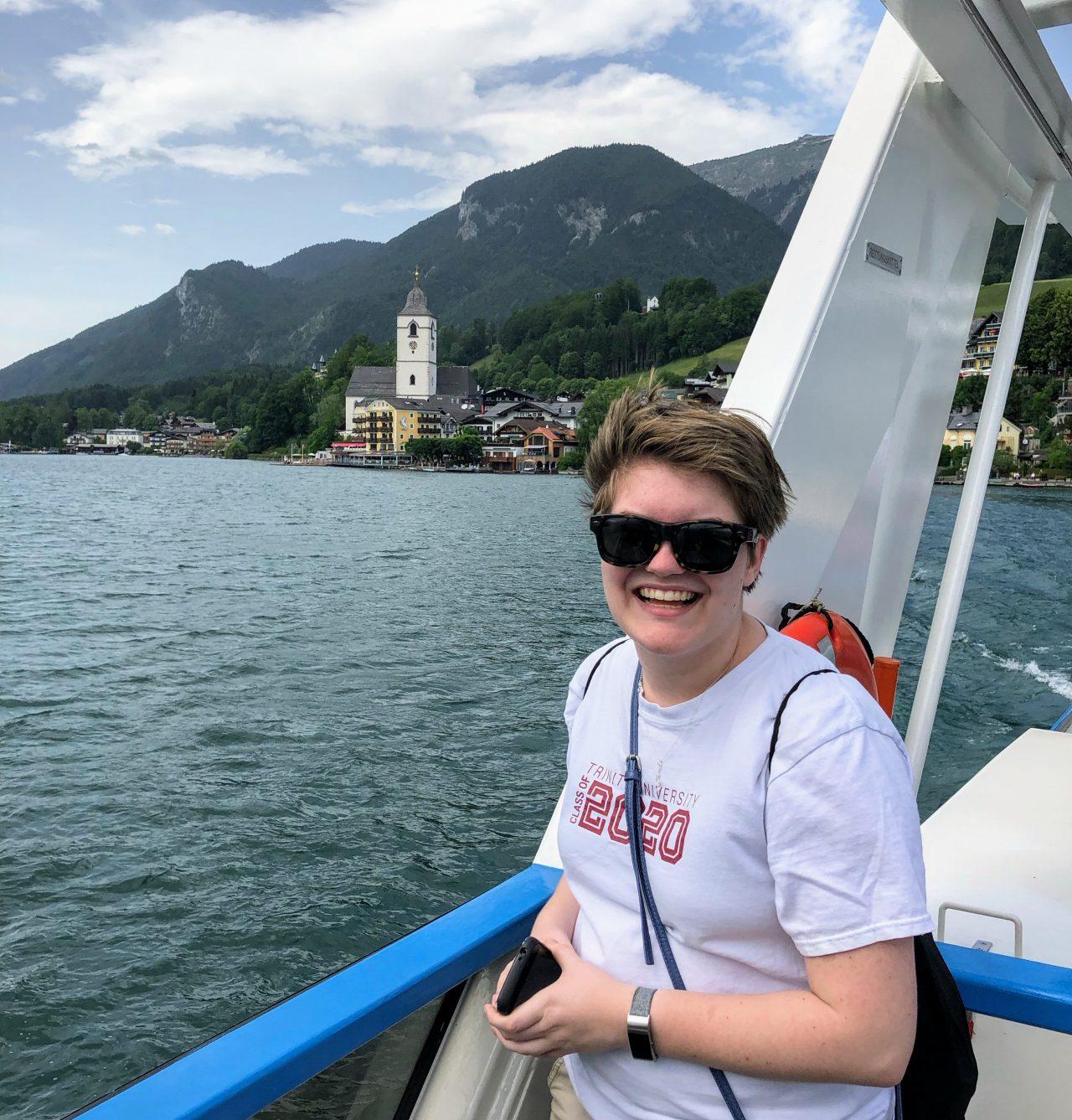photo provided by Faith Broddrick
Senior Faith Broddrick had always wanted to study abroad, but she faced two major barriers. First, her schedule as a music major was demanding — the major requires a total of 60 hours in the department — and she needed to find a program that would allow her to take classes over the summer. Another issue would be financing the trip.
Broddrick eventually found a prestigious summer program in Salzburg, Austria, run through Northern Illinois University’s music department. She also received the Carolyn Calvert scholarship, which is given each year to junior and senior music majors who want to study abroad over the summer.
Broddrick was relieved that her study abroad experience would not have to cut into her Trinity coursework, and that the scholarship would cover much of the cost.
“The scholarship is kind of like a solution … It’s still giving the student time to study away from Trinity, but not having to miss those classes that they would if they were studying abroad in the fall or spring semester,” Broddrick said.
According to David Heller, professor of music, Broddrick submitted a strong proposal for her plans to study in Salzburg.
“[Broddrick] was going into a really well-known, well-established program over in Salzburg, and she was going to be in a place that is rich in musical heritage and music history in Salzburg, and [the trip] was also working in conjunction with another university program,” Heller said. “We really like if [students are] enrolling in a program that is being sponsored by another school because we know that academically they’re not going over there for vacation, but [they’re] going over there for something that’s educationally-based.”
However, Broddrick’s financial worries were not completely solved by the Carolyn Calvert scholarship. The total cost of the trip was approximately $10,000, and while the scholarship partially funded the travel expenses, not all of the costs were covered.
In addition to doing odd jobs at her church to fund her trip, Broddrick decided to make a GoFundMe page to help her afford to go to Salzburg, with different reward tiers for friends and family members who donated.
“I had made a page kind of talking about my trip abroad, and how I would really appreciate whatever people might be interested in giving to help me out a little bit. I created some rewards, like, ‘If you donate $15, I’ll send a postcard your way from Austria,’ ” Broddrick said.
Broddrick also blogged about her time in Salzburg, to keep those who had helped fund the trip updated on what she was doing.
“If people were going to give me money, I didn’t want to drop off the face of the Earth … For people who donated a certain amount, I even sent them kind of individual newsletters about things that didn’t cut it into the blog, but like other interesting things or insights, bonus content per se.”
Salzburg is the birthplace of Mozart, and Broddrick spent most of her time in Salzburg studying Mozart’s life and music with a focus on the sacred music he composed as a young child. Along with two research papers, Broddrick also created her own original compositions inspired by his work.
“[Mozart] started writing sacred music at about five or so, because his father was employed by the church there, the cathedral. … I was interested in from a compositional standpoint from comparing his music from the beginning as a child, to his later years and his mature style,” Broddrick said.
For her composition independent study in Salzburg, Broddrick composed a piece for the instruments that were available to her.
“There were a few other students that were also doing independent study, who I made friends with, and their instruments were violin and flute,” Broddrick said. “We had a little concert at the end of the month, and we played a piece that I wrote for them, creatively titled ‘Duet for Violin and Flute.’ ”
While abroad, one of the biggest surprises for Broddrick was how music and the arts are funded and emphasized in Europe, as opposed to in the United States.
“In the U.S. you take a music entrepreneurship course, you have to market yourself, and then meanwhile, my German composition professor, who is only like two years older than me, is getting paid by the government there in Germany to have his pieces performed, and that’s pretty wild,” Broddrick said.
Broddrick came away from her study abroad experience with a renewed passion for studying music.
“I’ve definitely heard my share of ‘How are you going to make money? What exactly are you going to do with composition after your music degree?’ ” Broddrick said. “It was encouraging to see people who are successful in their fields, and know that maybe not all hope is lost from my end and I can still achieve things, even here in the United States.”







